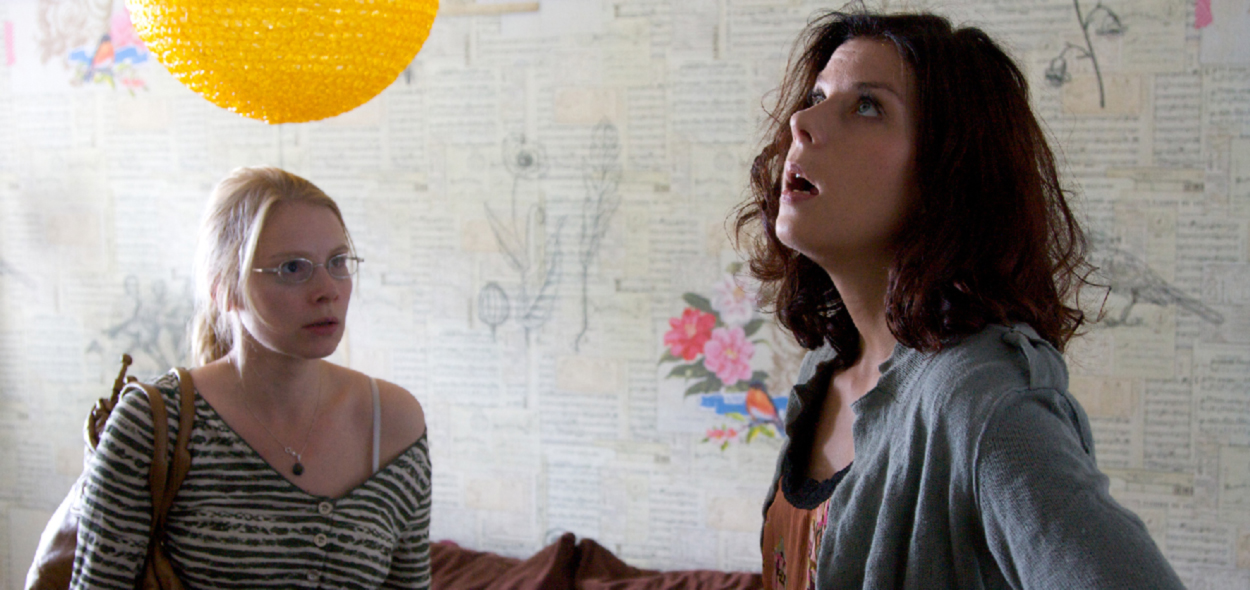
I’ve a confession to make. I love a good rom-com. Frankly, I don’t even care about the clichéd tropes; it’s my poison of choice, this brand of escapism. All of the rituals associated with it have a hold on me – the ‘aww’ moments, the tearjerkers, all of it. So, when I got the chance to cover ‘romantic’ comedies at the Scandinavian Film Festival, I took that opportunity gladly. First in line was 21 Ways To Ruin A Marriage – one of Finland’s all time successful films at the domestic box office – a pleasant surprise which provided some interesting inversions to the tropes of the rom-com genre.
Sanna Manner (played with a sassy stupor by Armi Toivanen) prefers to have one night stands with men whilst she’s drunk. This keeps her life decidedly ‘uncomplicated’. She’s also an academic, with a thesis published on the concept of relationships. All the research she’s done points to only one thing – relationships that have the best chance of survival have eliminated the idea of some abstract feeling of love and instead, rely on a pragmatic division of labour. Her views on love are re-enforced by watching her own father pine obsessively over her mother, who has left him and moved on with her life. However, the couple that Sanna believed had the most chance of success in their marriage divorces, and this leaves her confused. Surely, all the research can’t lie?
The little snippets of Sanna’s research interspersed throughout the film act as mini narrative interludes and form a liminal platitude that binds together the overtly absurd tone of the film, with the more sincere and heartfelt moments. The academic research serves as a commentary to the situations that Sanna and other characters in the film find themselves in. This turns out to be an interesting decision for the visual medium because it – quite purposefully – breaks the narrative flow and creates a zig-zag form of narrative which constantly reverts to Sanna’s research. Though at times off-putting, I found this to be quite an interesting stylistic choice that works very well for the most part.
Also, I didn’t expect to see as much of the Finnish countryside as I ended up seeing throughout the film. This film is very much rooted in the ambience, culture and aesthetic of Finland, which is captured astutely by Jan Nyman. Thankfully, the essence of the location is not limited to the audience being taken merely on a scenic tour and ends up embedded in the central narrative arc.
What was most refreshing to see was the creation of some really zany female characters that enhanced the narrative of the film. For example Sanna’s friend Aino (a wonderfully nonchalant performance by Essi Hellen) who makes life and future predictions based on radio commentary. Then there is Elli, the scarily over-the-top wife of one of Sanna’s students (hilarious cameo by Pamela Tola). To top it all off, there is Sanna’s incredibly sassy mother. In a genre defying move, it was pleasantly surprising to see female characters and their aspirations not be defined, or at very least, justified, by the presence of their respective male counterparts. I applaud writer/director Johanna Vuoksenmaa for infusing much needed sensibility and avoiding the most dreaded and overused trope in the rom-com genre. The male characters, for the most part, remain a secondary afterthought to the larger narrative at hand. I was quite happy and buoyed by this fact. Hence, I was disappointed when – after successfully avoiding the trope for the most part – the film partially succumbs to the genre convention by the end. Don’t get me wrong, it’s still a fun film to watch. Vuoksenmaa has created some refreshing characters, especially capturing the essence of the absurdity of female lived experience in places. The final nod to convention just robs the icing off the cake.
Kerkko Koskinen has come up with a peppy background score that enhances the manic action on screen. The Benny Hill-esque score that accompanies Sanna’s drunken escapades is most memorable.
Overall, 21 Ways To Ruin A Marriage is a genuinely funny and absurd rom-com that falls short of establishing new territory. Still, its genre defying fragments prove that the rom-com genre just needs the requisite vision and tact to repackage and reinvent itself for audiences.
